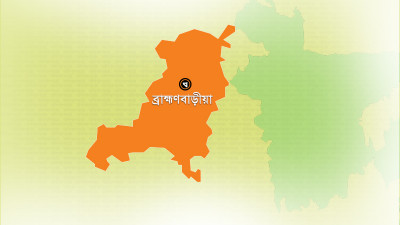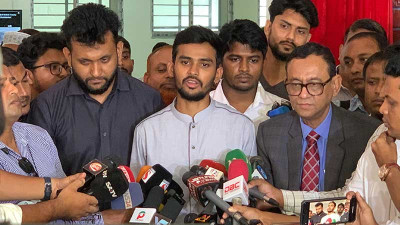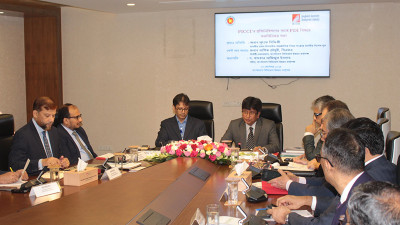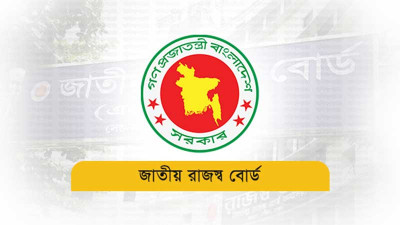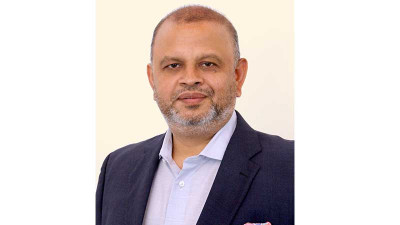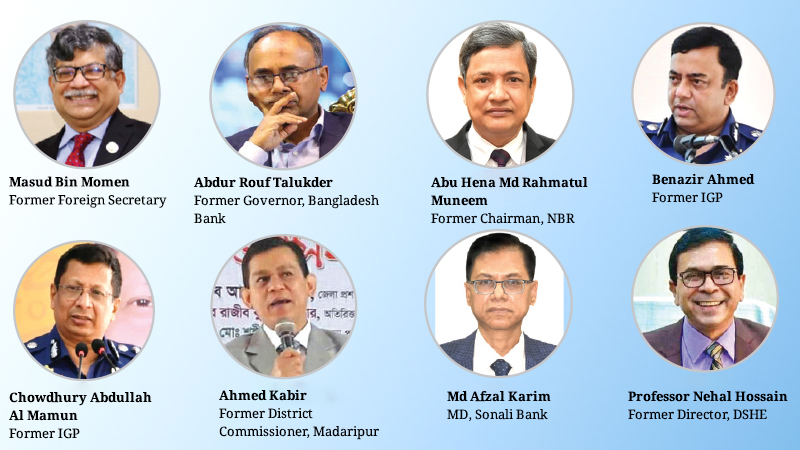 Photo: Bonik Barta
Photo: Bonik Barta The National Integrity Strategy was introduced in
government offices in 2018. At that time, it was stated that the purpose of
this strategy was to enhance the professional skills, integrity, ethics, and
work quality of the republic's employees. As part of this initiative, three
officials from each government department have been awarded the National
Integrity Award since then. According to government data, over 10,000 officials
from various ministries, departments under ministries, offices, directorates,
district, and upazila administrations have received this award.
In most cases, it has been observed that the National
Integrity Award has been predominantly given to officials who are closely
aligned with those in power. In recent years, many who have received this award
have been accused of corruption, dishonesty, and ethical breaches at various
times. Among those who received the award during the tenure of the then-government
is former Inspector General of Police (IGP) Benazir Ahmed, who fled the country
under corruption charges, and Ahmed Kabir, the former District Commissioner of
Madaripur, dismissed for moral misconduct. Additionally, some of the notable
government officials who have received the award in recent years include former
IGP Chowdhury Abdullah Al-Mamun, former Foreign Secretary Masud Bin Momen,
former Governor of Bangladesh Bank Abdur Rouf Talukdar, former Director General
of the Directorate of Secondary and Higher Education (DSHE) Professor Nehal
Ahmed, MD of Sonali Bank Md. Afzal Karim, and former Chairman of the National
Board of Revenue (NBR) Abu Hena Md Rahmatul Muneem, among others.
To find out how many government officials have received
the Integrity Award since its inception, Bonik Barta contacted the government's
relevant ministries, departments, and directorates. However, a comprehensive
list was not obtained from these institutions. Nevertheless, investigations
revealed that at least over 10,000 officials, ranging from ministries to
upazila administrations, have received the Integrity Award. Individuals who
have held significant roles in various ministries and departments have also
confirmed this number.
Speaking anonymously, a source from the Ministry of
Housing and Public Works told Bonik Barta, "The Integrity Award is given
to officials based on a specific numbering system. This numbering system
entirely depends on senior officials. If you can please senior officials, you
can achieve the highest numbering and win the Integrity Award. Although the
award initially functioned well after its introduction, it has become entirely
person-centric. Honest officials no longer even expect the Integrity
Award."
For the Integrity Award, 18 attributes are considered as
criteria. These include professionalism, behavior, and attitudes. Other factors
in the list include professional knowledge and skills, evidence of integrity,
reliability and diligence, discipline, interaction with colleagues and service
recipients, proficiency in information technology, and a tendency to take fewer
leaves. Each attribute is assigned 5 points, making a total of 90 points.
Additionally, 10 points are allocated for fulfilling other tasks the relevant
authorities assign, bringing the total to 100 points.
When asked about the Integrity Award, Muhammad Nazmul
Haque, Deputy Secretary of the Integrity Branch of the Cabinet Division, told
Bonik Barta, "According to the rules, if someone does not score more than
80 percent, they have no chance of receiving the Integrity Award. Therefore,
not all departments and ministries may always award the Integrity Award."
The government official added, "No accurate record
of how many Integrity Awards have been given in any government office. The
relevant ministries, departments, or offices have the discretion in this
matter. This information will be available with the respective ministry or
department."
Transparency International, an international organization
based in Berlin, Germany, publishes an annual report to provide insights into
corruption in various countries. They have released the Corruption Perceptions
Index (CPI) report for the year 2023. According to this report, Bangladesh is
ranked 10th among the most corrupt countries in the world, an improvement from
its 12th position in 2022. Transparency International's observations indicate
that corruption among government officials is more prevalent in countries with
non-democratic and authoritarian regimes.
When asked about this, Iftekharuzzaman, Executive
Director of Transparency International Bangladesh (TIB), told Bonik Barta,
"We have been criticizing the Integrity Award since its announcement. The
idea was good, but the prize award criteria were questionable. It ended up
rewarding officials with vested interests, making it a tool of corruption
itself. Many used it to avoid accountability. The award was based on partisan
interests, professional incompetence, and personal or party gains.
Consequently, many officials who performed well found themselves in
jeopardy."
He said, "We don't suggest cutting off the head for
a headache. Instead, the award process needs reform. It should be used to
reward qualified, ethical officials who are not involved in financial
scandals."
Experts say that when an administration becomes corrupt
and degenerate, reputation and personal connections often take precedence over
integrity in awarding such prizes. The receipt of the Integrity Award by
officials with vested interests encourages other officials at the field level to
follow the same path. In this situation, there is a need to establish a
universally accepted system for awarding the Integrity Award that genuinely
incentivizes government officials to maintain integrity in their workplaces.
Dr. Naznin Islam, Chair of the Department of Public
Administration at Dhaka University, told Bonik Barta, “To receive an award, one
must meet the criteria set for it. However, we observe that those who are
honest and not corrupt tend to remain silent and avoid the spotlight. They do not
receive the award. Instead, it is often given to well-known people who can
promote themselves. This culture leads to such occurrences. It is becoming
increasingly common, largely due to personal connections. We have a new
Bangladesh now, and I hope we will be free from such corruption in the future.”
When asked about the overall situation, former Cabinet
Secretary Musharraf Hossain Bhuiyan told Bonik Barta, “Whenever an award is
discussed, someone usually proposes it. Even for national-level awards, proposals
are made. The person who proposes the award does not have complete knowledge of
everything. The information comes from the field level, departments, and
directorates to those who give the Integrity Award. As a result, it later turns
out that the award recipient is involved in some kind of flaw or becomes
entangled in corruption after receiving the award. The less such involvement,
the better.”
He added, “An award is an incentive. We often see that
many honorable individuals who have received national-level awards later become
involved in various misconducts. Therefore, we cannot hold the entire system
responsible for the actions of a single award recipient.”

